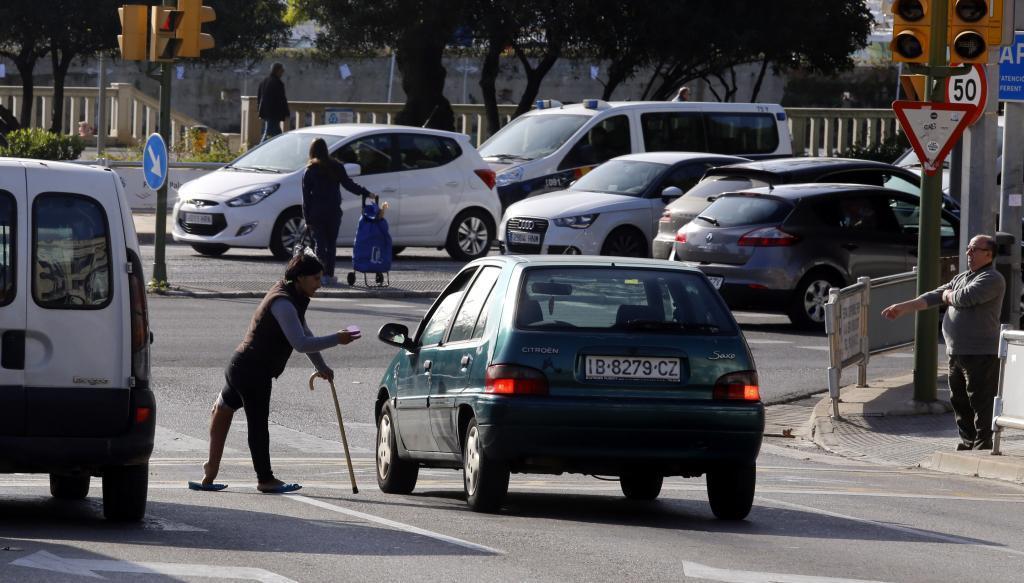A Romanian gang is behind the presence of well over fifty beggars in Palma. Also Romanian and of Romani ethnicity, the beggars generally suffer from some form of disability and operate on the streets, at traffic lights and outside supermarkets. This "mafia" is said to control around 95% of beggars in the city; only two or three of them are Spanish.
The National Police and local police are being hampered in their control over the gang and the beggars by secrecy and a "law of silence" among the gypsies. The police say that the centres of the organisation are Burgos and Valladolid on the mainland. Once the destitute people arrive in Spain, they are sent to different cities, according to the potential of the cities.
This is said to be a well-organised and well-structured operation, with absolute control being exerted over the "workers". The police have at times counted more than a hundred beggars who work supermarket entrances and the traffic lights along the front line, in the centre and at other points where there is a high density of traffic. The vast majority are from the same family or clan and live in overcrowded conditions in Son Gotleu.
The police are unable to quantify exactly how much the beggars take each day, but the estimate is between 75 and 100 euros. They work every day and there are no limits on hours. They typically carry a sign with various spelling mistakes and a photo of a minor in order to elicit sympathy; the same goes for their disabilities. Women are normally to be found outside supermarkets and the men are at the traffic lights.
Confronted by the silence, the police are finding it difficult to establish offences of human trafficking, sentences for which can be up to fifteen years.


6 comments
To be able to write a comment, you have to be registered and logged in
Adriaan, there may be if I bothered to delve into the mists of time, but at least I know who my father was, unlike you, who hasn't got a surname.
Romanians and certain other eastern europeans are the scourge of most European cities. Countries like these should never have been let in the EU or if so, shouldnt have been allowed to migrate to civilised places. Romanians have some sort of genetic disposition towards criminality.
I have heard that the most (in)famous gypsy family is the Towý family. Family of yours, Simon?
That's no news is it ? They are indeed all over the place. What are you telling us that nothing can be done because the law of silence between the gypsies ? Do not make me laugh, it more or the same with the prostitutes around Palma resorts , nothing is done. We have Romanians in Pto Soller who so called play music along the prom. during lunchtime Terrible stuff But what do they do there before and after their performance The authorities do not seem to bother.
Romanian gypsies are a human crime wave and the exact same happens here in all major UK cities. They are seen as a minority. It's about time we kicked this political correctness into touch and started actively deporting them. This is one reason why Brexit has happened, people are fed up with this carry on.
Franco would have had it sorted before breakfast.